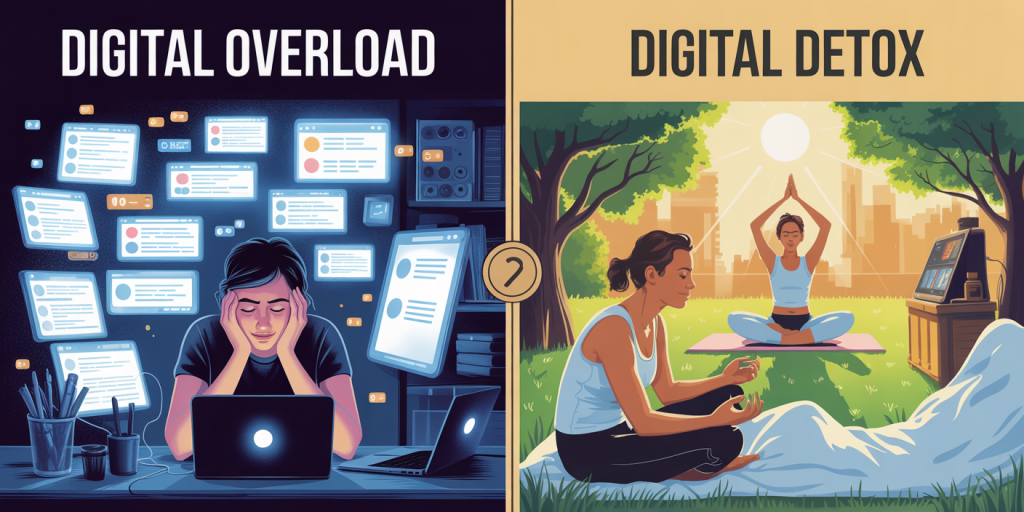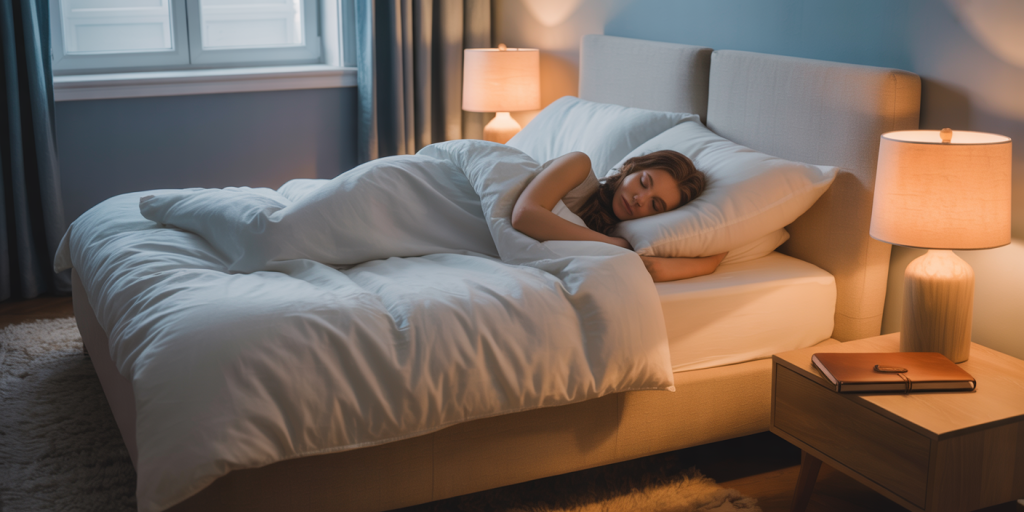Why a Digital Detox Weekend Could Change Your Life
In today’s hyperconnected world, digital devices have become integral to how we work, communicate, and entertain ourselves. Smartphones, laptops, tablets, and social media platforms vie constantly for our attention. While technology offers numerous benefits, excessive screen time can lead to digital overload, diminished productivity, increased stress, and even mental health challenges. Amid this digital saturation, the idea of a “digital detox weekend” — a deliberate break from all digital devices — has gained momentum as a powerful tool to reset, recharge, and regain balance.
Taking a weekend off from screens may seem daunting, but emerging research and countless anecdotal accounts demonstrate its profound impact. This article explores why unplugging for a weekend can be transformative, supported by data, practical examples, and expert insights. It also provides comparative perspectives on lifestyle before and after a digital detox, highlighting the tangible benefits this simple practice can bring.
The Modern Digital Dependency Dilemma
The rise of smartphones and social media has dramatically reshaped daily life. According to a 2023 report by Statista, the average adult spends roughly 7 hours and 30 minutes on digital media each day, including social networking, video streaming, and browsing. This figure has steadily increased over the past decade, driven by the accessibility of 24/7 connectivity and the ubiquity of mobile devices.
While technology facilitates instant communication and endless information, it also generates a continuous stream of notifications, emails, and digital distractions. The overuse of digital devices is linked to problems such as: Increased anxiety and depression symptoms Impaired sleep quality Reduced attention spans and productivity Social isolation despite constant “virtual” connection
Anúncios
A 2021 study published in the *Journal of Behavioral Addictions* found that individuals who spend more than five hours daily on digital screens have a 25% higher risk of developing anxiety disorders. This highlights the urgency of managing technology use more mindfully.

Digital dependency is particularly concerning for Millennials and Gen Z, who report feeling “always on” and experience “digital fatigue.” For instance, a Deloitte Global Mobile Consumer Survey in 2022 noted that 60% of young adults felt overwhelmed by the number of notifications on their phones.
Defining a Digital Detox Weekend
A digital detox weekend is essentially a planned break from all screens and digital communication devices—smartphones, computers, tablets, and even televisions. During this period, individuals disconnect from social media, emails, messaging apps, and online entertainment to focus on offline activities and face-to-face interactions. The detox can vary in strictness, from complete device abstinence to limited use in emergencies.
Real-life examples underscore the detox benefits. For instance, author and mental health advocate Cal Newport publicly spoke about his “digital sabbaticals” where he avoids smartphones and internet use for multiple days. He credits these periods with improved creativity, clarity, and mental well-being.
Another practical case comes from corporate environments adopting “no-email weekends” to reduce burnout. At a mid-sized consultancy firm in London, implementing this policy led to a reported 30% reduction in employee stress levels and noticeably better focus during working hours.
Comparative Table: Typical Digital Weekend vs. Digital Detox Weekend
Anúncios
| Aspect | Typical Digital Weekend | Digital Detox Weekend |
|---|---|---|
| Average screen time | 8-10 hours | 0-1 hour (emergency use) |
| Social interaction | Mostly virtual via messaging & video | Predominantly face-to-face or none |
| Sleep quality | Often disrupted due to blue light | Enhanced, with earlier fall asleep |
| Stress levels | Elevated due to constant stimuli | Reduced with mental rest |
| Productivity & focus | Frequently interrupted | Improved sustained attention |
| Physical activity | Mixed; often sedentary | Increased due to offline pursuits |
This table illustrates why a digital detox has the potential to recalibrate physical and psychological health in ways typical weekends do not.

Psychological Benefits of Digital Detoxing
Reducing screen time, even for a brief weekend, produces measurable mental health improvements. Digital overload triggers the release of cortisol, the body’s stress hormone, and fosters hypervigilance due to continuous notifications and information bombardment. Stepping away allows the brain to enter a recovery mode, enhancing emotional regulation and reducing anxiety.
A 2022 randomized controlled trial published in *Cyberpsychology, Behavior, and Social Networking* assessed college students’ mental states during a 72-hour tech fast. Participants reported a 40% decrease in feelings of loneliness and a 35% reduction in stress, alongside improvements in mood and creativity.

Additionally, unplugging supports mindfulness. Without constant digital distractions, individuals often develop greater self-awareness and presence in the moment. Mindfulness practices, such as meditation or simply engaging in offline hobbies, become easier and more fulfilling during a detox weekend.
Practical example: Lisa, a 34-year-old marketing professional, shared how her digital detox weekend relieved her chronic insomnia. By avoiding her work emails and social media before bedtime during the detox, she experienced significantly better sleep and felt more energized throughout the following week.
Physical Health Advantages of Disconnecting
The physical toll of excessive screen time is often overlooked. Sedentary behavior associated with screen use increases risks of obesity, cardiovascular disease, and musculoskeletal problems. Moreover, blue light emitted by screens disrupts natural circadian rhythms, interfering with melatonin production critical for restful sleep.
Unplugging for a weekend can reverse some of these negative effects. When people disconnect from screens, they tend to spend more time outdoors and engage in physical activities. For example, a survey by the American Psychological Association in 2023 showed that 68% of individuals who completed a digital detox reported increased outdoor activity and exercise.
The benefits extend to eye health. Prolonged screen use is linked to Computer Vision Syndrome, causing eye strain, headaches, and blurred vision. A digital detox gives eyes the necessary respite to reduce fatigue and dryness.
A study conducted by the University of California, Berkeley, found that participants who reduced screen time by 50% over a weekend exhibited lower heart rates and blood pressure measures by 10-15%, suggesting reduced physiological stress.
Fostering Real Connections and Social Well-Being
Ironically, heavy reliance on digital communication can diminish genuine social connection. While social media allows easy communication, it often lacks depth, leaving individuals feeling more isolated and misunderstood. Research by the Pew Research Center in 2021 noted that 45% of social media users felt socially isolated despite having hundreds of online “friends.”
A digital detox weekend encourages people to reconnect in person or enjoy solitude without virtual interruptions. Family gatherings, walking with friends, or simply conversing face-to-face help restore social bonds in meaningful ways.
For example, John and Sarah, a couple in their 40s, committed to a weekend without devices monthly. During these detox weekends, they reported deeper conversations and greater intimacy, highlighting how removing screens can refocus attention on personal relationships.
Moreover, in workplaces cultivating detox habits, team cohesion and morale often improve. Cutting down digital distractions during rest periods helps employees return energized and better able to empathize and collaborate.
Practical Tips for a Successful Digital Detox Weekend
Embarking on a digital detox weekend requires planning and discipline to ensure success and diminish anxiety about being unplugged. Here are several practical strategies:
1. Inform Family and Friends: Letting close ones know about your detox plans prevents misunderstandings and allows for emergency contacts.
2. Set Clear Boundaries: Define what constitutes a detox for you — whether total disconnection or limited, emergency-only device use.
3. Create a Digital Free Zone: Designate specific areas in your home, such as bedrooms or dining rooms, as no-device zones.
4. Plan Offline Activities: Schedule engaging hobbies like reading, hiking, cooking, or board games to fill your time meaningfully.
5. Use Analog Alternatives: Keep a physical journal or planner to replace digital note-taking during the detox.
6. Prepare for Withdrawal Symptoms: It’s common to feel uneasy or restless initially; mindfulness and breathing exercises can help ease these sensations.
An example of these strategies in action comes from a tech startup implementing “detox challenge weekends” for employees. They distribute printed guides and encourage group hikes or creative workshops, resulting in overwhelming positive feedback and increased willingness to participate.
Looking Ahead: The Future of Digital Detoxing
As awareness about digital wellbeing grows, digital detoxing is poised to become more mainstream and institutionalized. Forward-thinking companies are already integrating tech-free periods into corporate culture to combat burnout and promote mental health.
On a societal level, the rise of digital minimalism and conscious tech use suggests more individuals will adopt regular detoxes as part of their lifestyle. Apps and devices themselves are evolving to support this trend—introducing features like focus modes, screen time trackers, and scheduled device shutdowns.
Emerging research continues to explore long-term benefits of regular digital detoxes, their impact on cognitive functions, and improved emotional intelligence. Educational curriculums are also exploring how to educate younger generations on responsible technology use, emphasizing periodic disconnection.
The concept of digital detox weekends could expand into wellness retreats, combining mindfulness, nature immersion, and digital abstinence to offer holistic restoration. As remote work blurs boundaries between personal and professional screen time, the importance of intentional digital breaks will only intensify.
A digital detox weekend offers a powerful antidote to the negative effects of excessive screen time. By intentionally disconnecting, individuals can experience reduced stress, improved sleep and focus, deeper social connections, and better physical health. Practical implementations from individuals, corporations, and communities demonstrate that this practice is achievable and immensely beneficial. In a world saturated with digital stimuli, pausing regularly to unplug may indeed be a life-changing habit for enhancing both well-being and productivity.
